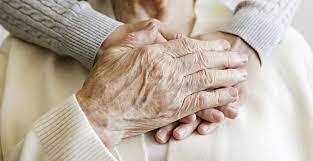Understanding the Emotional Landscape of Aging
Why Emotional Well-being Matters in Old Age
As people age, emotional health becomes just as crucial as physical health. Seniors face unique emotional challenges due to loss, isolation, and major life transitions. Addressing these needs improves quality of life and reduces risks of depression or anxiety.
Common Emotional Challenges in the Elderly
- Loneliness and social isolation
- Grief from losing loved ones
- Declining independence
- Anxiety about health or finances
- Fear of being a burden
Key Emotional Needs of the Elderly
Need for Companionship
Social connection helps seniors feel valued and less alone. Companionship combats depression and supports cognitive function.
Need for Purpose
Engaging in meaningful activities or hobbies gives a sense of achievement and identity, helping seniors maintain emotional balance.
Need for Respect and Dignity
Feeling respected boosts self-esteem. Caregivers should involve seniors in decisions and treat them with dignity to preserve their autonomy.
Need for Safety and Security
Emotional safety means feeling protected and supported. Seniors benefit from stable environments and reliable routines.
Need for Love and Affection
Expressions of care—through words, touch, or attention—nurture emotional health. Feeling loved reduces stress and improves overall well-being.
The Caregiver’s Role in Meeting Emotional Needs
Providing Emotional Support
Listening attentively and acknowledging emotions validates a senior’s feelings and strengthens trust.
Encouraging Social Interaction
Facilitating phone calls, visits, or group activities helps maintain a sense of community and belonging.
Supporting Independence
Allowing seniors to manage tasks they’re capable of fosters self-worth and reduces feelings of helplessness.
Creating a Positive Environment
A calm, familiar setting filled with encouragement and routine brings emotional stability and comfort.
Involving Seniors in Daily Life
Including elderly loved ones in household decisions or activities boosts their confidence and sense of involvement.
Techniques for Supporting Elderly Emotional Health
Active Listening
Make eye contact, avoid interruptions, and reflect back feelings to show understanding and care.
Therapeutic Activities
Activities like music therapy, art, or journaling help express emotions and relieve stress.
Reminiscence and Storytelling
Discussing memories and past experiences helps preserve identity and provides joy and cognitive stimulation.
Routine and Predictability
Maintaining a regular schedule offers comfort and reduces anxiety, especially in seniors with cognitive decline.
Access to Professional Support
In cases of depression or anxiety, counseling or therapy may be necessary. Encourage and facilitate professional help when needed.
Recognizing Signs of Emotional Distress
Behavioral Changes
Withdrawal, irritability, or aggression can signal emotional pain or depression.
Physical Symptoms
Fatigue, appetite loss, and sleep disturbances may point to underlying emotional issues.
Verbal Expressions
Phrases indicating hopelessness, fear, or sadness should be addressed promptly and empathetically.
Conclusion
Caregivers play a vital role in fulfilling the emotional needs of elderly individuals. By fostering companionship, promoting purpose, and creating a supportive environment, caregivers can significantly enhance the emotional well-being of those in their care. Understanding and addressing these needs builds trust, strengthens relationships, and contributes to a healthier, happier aging process.
FAQs
1. Why do elderly people often feel lonely?
Aging often brings the loss of friends, reduced mobility, and less social interaction, leading to loneliness.
2. How can I help a senior who seems depressed?
Offer emotional support, encourage social activities, and seek professional help if symptoms persist.
3. What activities help improve emotional health in the elderly?
Hobbies, light exercise, music, social interaction, and volunteering can all boost mood and self-worth.
4. How do I talk to my elderly parent about their feelings?
Use a calm, respectful tone, listen without judgment, and show empathy to build open communication.
5. When should I consider therapy for an elderly loved one?
If signs of depression, anxiety, or emotional distress last for more than a few weeks, professional therapy can help.












